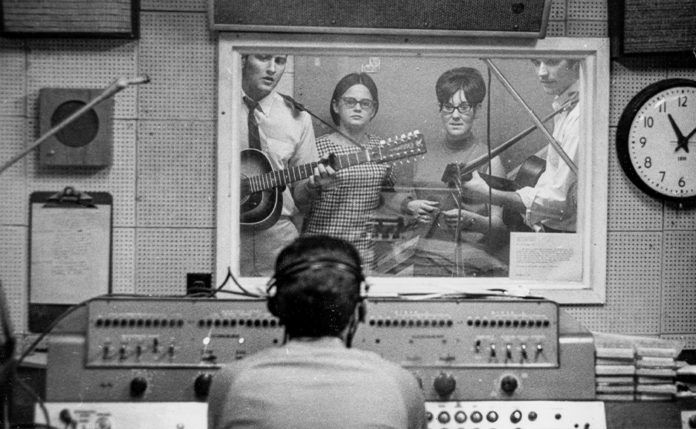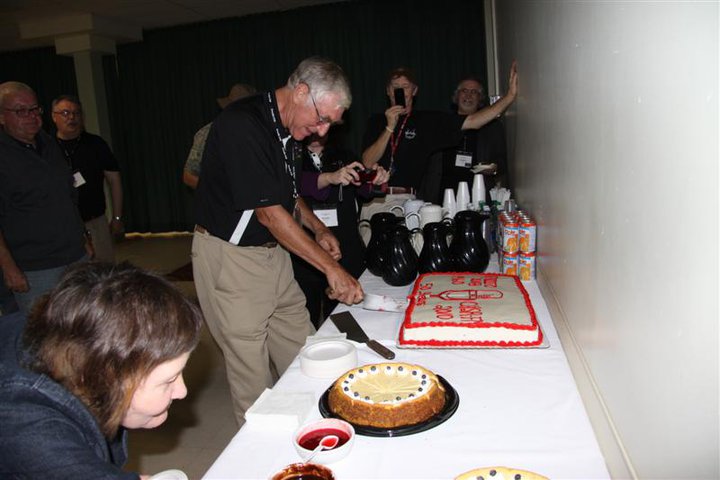
In the spring of 1960, the University of Toronto held a conference where university students across Canada tried to convince the CBC to produce a university-related program dealing with current affairs from the institutions.
One idea was that some universities should create their own radio stations. Barry Yoell, a member of the University of New Brunswick’s Student Representative Council, wrote a letter to CBC asking to donate equipment to UNB to start a show. Later that summer, CBC and other private stations in New Brunswick sent Yoell boxes of equipment.
In September 1960, Yoell organized a meeting with UNB students and they wired up the residences and campus lounges and hooked up speakers in each room. They created a studio in one of the basement broom closets on campus using the equipment they’d received.
“With great pomp and ceremony, the president of UNB threw the switch and they played a few tunes, read some student-related stuff and off we went. That’s how it started,” said Bill Akerley, a former member of CHSR.
Radio UNB went on-air in January 1961, marking its 60th anniversary this month. Akerley said by the time he began attending St. Thomas University in 1965, the radio station was growing.
“We got a speaker and turned it on and it would sound like real radio,” he said.
Akerley attended STU from 1965 to 1969. He majored in political science and volunteered at the radio station during his time there.

The UNB Student Representative Council paid for Radio UNB’s costs. Because of this, STU students were allowed on-air, but they were never allowed management positions.
“You could be pretty much anything else you wanted if you were from St. Thomas, except you could not be the director,” he said.
While at STU, he worked his way up from first-year, taking every possible on-air shift that would come up. In his second year, he became the chief announcer and became the station manager in his third year. But since he was a STU student, he couldn’t move further.
After graduating from STU, he planned to get his master’s in political science at UNB. But after receiving a job offer in public relations, he stayed back home in Edmundston and worked for a year. Though, he still commuted almost every weekend to UNB to record shows for the radio station.
Someone told him that if he wanted to go into politics, he should become a lawyer, so he applied to the UNB law school and started in September of 1970.
His chance to become the director of Radio UNB had arrived.
In October 1970, a month after he returned to campus, Akerley decided to deal with his frustration with STU students not being allowed to apply for the same positions as UNB students in his role as director. He formed a committee called the UNB-STU Radio Commission to convince both the STU and UNB SRC representatives to unite. This also meant that STU would pay for some of the station fees.

In the late fall of 1970, the committee’s report was brought forward and everyone agreed to unite. STU decided that they would put in their share of the money.
Radio UNB couldn’t carry on with its name since STU was now an equal part. With his executives at the radio station, they decided to come up with a new name that fit better. That’s when the name College Hill Student Radio was created, or CHSR.
“To us, going to classes at St. Thomas or UNB was more of a part-time experience,” he said. “For many of us, [radio] became a career. It became a life-changing moment and we finally knew what we wanted to do in life.”
Akerley said he never intended for journalism, broadcasting or media to be his future, but he has since made a career out of it and has spent 28 years at CBC.
“It was entirely because of CHSR.”
